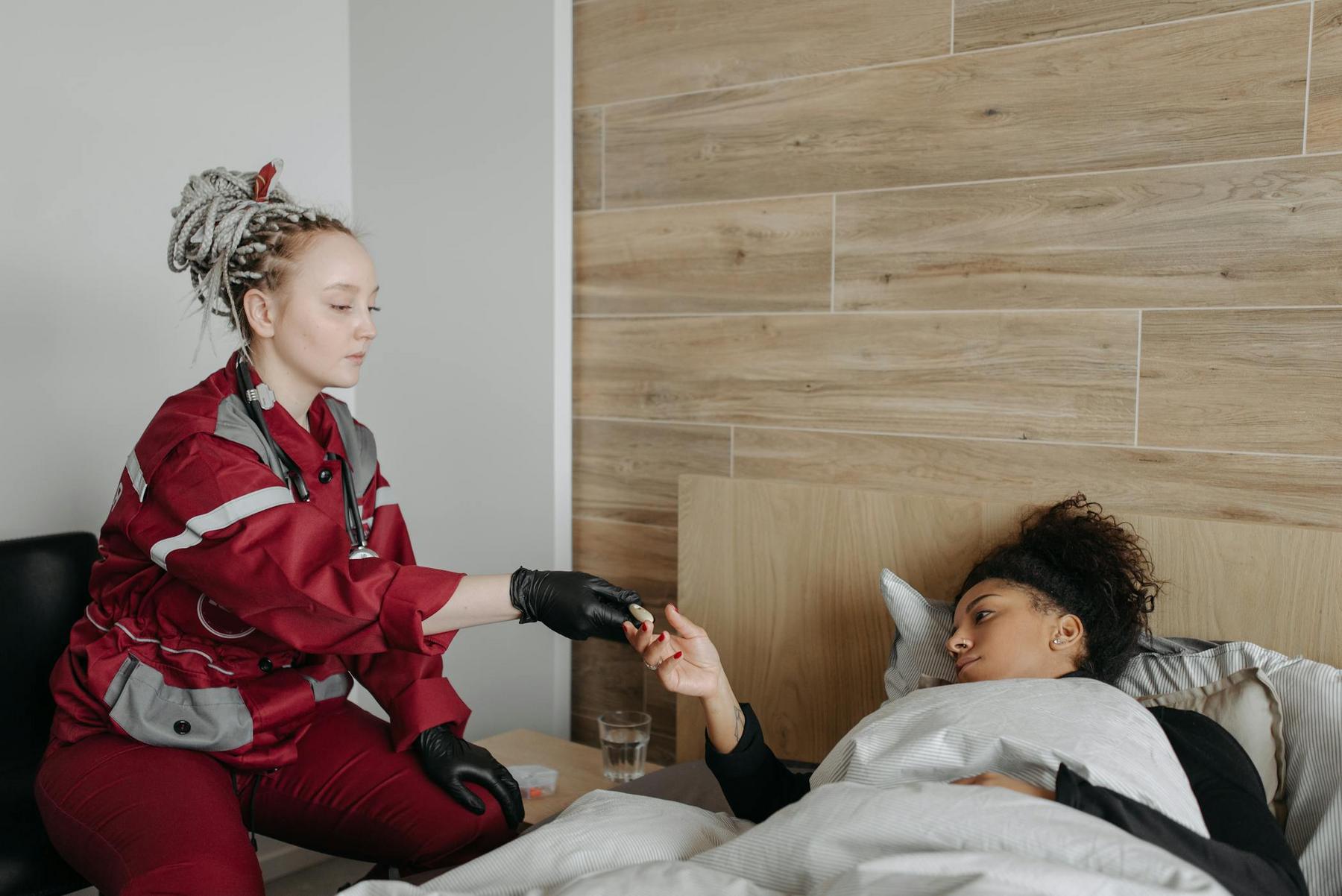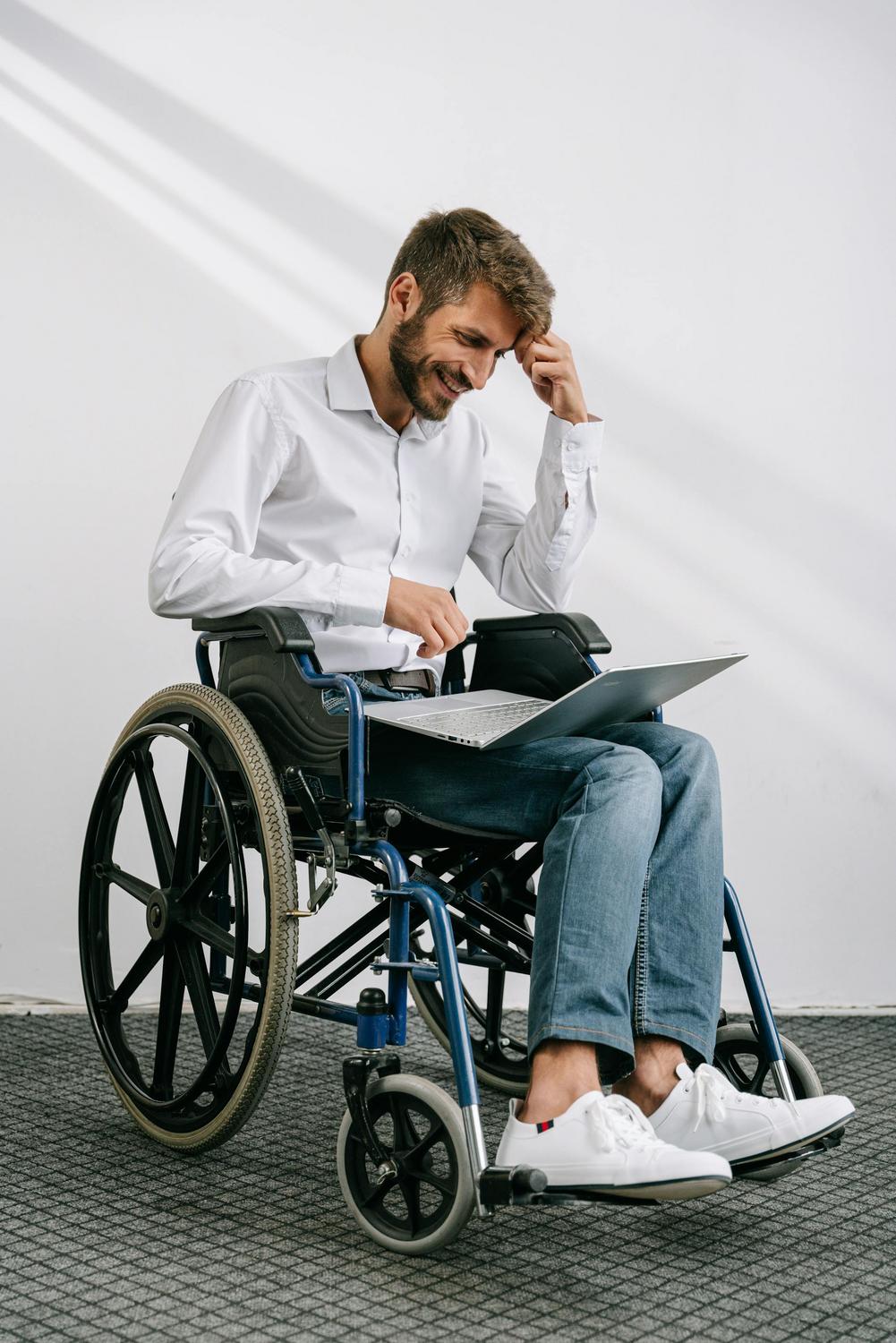For many Australians living with disabilities, a good night’s sleep feels like an impossible dream. When the sun sets and the world winds down, challenges multiply—repositioning needs, medication schedules, anxiety about being alone, and the constant vigilance required for safety. It’s a reality that affects not just individuals with disabilities, but also the family members and carers who lie awake, listening for sounds of distress, ready to respond at a moment’s notice. The exhaustion compounds day after day, impacting health, wellbeing, and quality of life in profound ways. Yet there’s a solution many families in Cairns and Brisbane don’t know exists: Professional overnight support services that provide dignity, safety, and the restorative sleep everyone deserves.
Why Do People with Disabilities Experience More Sleep Difficulties?
The relationship between disability and sleep disturbance is both complex and well-documented. Research from the University of Washington Rehabilitation Research & Training Centre reveals that approximately 40% of adults with disabilities report experiencing long-term sleep difficulties—nearly double the rate of the general population.
According to the Behavioural Risk Factor Surveillance System study, 44.8% of adults with disabilities get less than six hours of sleep per night, compared to just 27.1% of adults without disabilities. More concerning still, only 47.8% of people with disabilities achieve the recommended seven to nine hours of nightly sleep, whilst 70.7% of people without disabilities reach this target.
The Physical Challenges
Physical disabilities create unique sleep barriers that many take for granted. Conditions such as cerebral palsy, spina bifida, and muscular dystrophy can make finding comfortable sleeping positions extraordinarily difficult. Research published in Physical & Occupational Therapy in Paediatrics found that children with physical disabilities took an average of 37 minutes longer to fall asleep on weeknights compared to children without disabilities.
The inability to reposition independently during the night means individuals may wake multiple times requiring assistance to shift their body and prevent pressure sores. Pain management also plays a significant role—chronic discomfort intensifies at night when distractions fade, creating a vicious cycle where poor sleep lowers pain thresholds and increased pain disrupts sleep quality.
Intellectual and Neurodevelopmental Factors
Sleep problems are at least four times more common in individuals with intellectual disabilities compared to those without. A systematic review found that sleep disorder prevalence in adults with intellectual disabilities ranges from 8.5% to 34.1%, with 72% of older adults with intellectual disabilities experiencing sleep difficulties.
For individuals with autism spectrum disorder, sleep challenges persist across the lifespan. Adults with high-functioning autism experience significantly more general sleep disturbances than neurotypical adults, including longer sleep onset latencies, poorer sleep efficiency, and more fragmented sleep. Approximately 27.8% of adults with autism spectrum disorder meet criteria for insomnia, compared to just 5.56% of neurotypical individuals.
Medical Complications and Comorbidities
Many disabilities come with increased risk of specific sleep disorders. Obstructive sleep apnoea (OSA) affects approximately 20% of the general Australian population but occurs at dramatically higher rates in certain disability groups. Adults with Down syndrome commonly experience OSA due to hypotonia, obesity, and craniofacial abnormalities. First Nations Australians with disabilities face almost twice the rates of OSA compared to non-Indigenous populations.
The economic and health burden is staggering. Inadequate sleep costs Australia an estimated $75.5 billion annually in direct health costs, lost productivity, and cardiovascular complications. OSA alone accounts for $26 billion of this burden—costs that disproportionately affect disability communities.
What Types of Overnight Assistance Are Available Through the NDIS?
The National Disability Insurance Scheme recognises that sleep support constitutes a critical component of disability care, providing funding mechanisms specifically designed for overnight assistance. Understanding the options available empowers individuals and families in Cairns and Brisbane to make informed choices about their support needs.
Passive Support: Night-time sleepover support
Night-time sleepover support represents the most common form of overnight assistance. Under this arrangement, a support worker stays overnight at a participant’s home or supported accommodation setting, remaining “on call” throughout the night. The support worker is allowed to sleep when assistance is not required, but remains ready to respond immediately when needs arise.
According to NDIS Pricing Arrangements, night-time sleepover support must meet specific criteria: support commences before midnight and finishes after midnight the following day, continues for at least eight hours, and includes up to a maximum of two hours of active support within that period.
This option suits individuals who generally sleep well but may need occasional assistance with toileting, repositioning, medication administration, or reassurance during periods of night-time anxiety. It provides peace of mind for those uncomfortable being alone whilst remaining more affordable than continuous active support.
Active Support: Waking Night Care
For individuals requiring continuous monitoring or frequent interventions throughout the night, active overnight support provides a higher level of care. The support worker remains fully awake and alert throughout agreed hours, providing continuous supervision and assistance as needed.
This option is particularly appropriate for individuals with epilepsy requiring seizure monitoring, those with respiratory conditions needing regular checks, individuals with significant night-time disorientation or complex medical needs, or those at risk of behaviours that could compromise safety.
If passive sleepover support requires more than two hours of active support during the night, additional hours are charged at Saturday rates on weekdays, or applicable rates on weekends and public holidays.
NDIS Pricing in Queensland
The following table outlines current NDIS maximum price guide rates for overnight support services applicable to Cairns and Brisbane:
| Support Type | Service Description | Maximum Rate (MMM 1-5) | Line Item Number |
|---|---|---|---|
| Night-Time Sleepover | 8+ hour period, up to 2 hours active support | $297.60 per session | 01010010711 |
| SIL Night-Time Sleepover | Overnight support in Supported Independent Living | $297.60 per session | 01832011511 |
| Remote Area Support | Night-time sleepover in remote areas | $416.64 per session | Various |
| Very Remote Support | Night-time sleepover in very remote areas | $446.40 per session | Various |
It’s important to note that NDIS rates represent maximum charges. Many providers, including those serving Cairns and Brisbane, charge less than the price cap to provide better value whilst maintaining high-quality service delivery.
What Support Activities Are Included?
Professional overnight support encompasses a comprehensive range of assistance tailored to individual needs:
- Physical care: Toileting assistance, changing continence products, repositioning to prevent pressure sores, medication administration, hydration support, and safe mobility assistance for bed transfers.
- Health monitoring: Observation of symptoms or vital signs, pain recognition and management, emergency response capability, and detailed recording and reporting of night-time care and any changes observed.
- Emotional support: Reassurance and calming presence for night-time anxiety, gentle reorientation for those waking confused or disoriented, quiet companionship during periods of wakefulness, and creation of peaceful sleep environments.
- Practical support: Management of environmental factors like temperature, lighting, and comfort; conducting safety checks throughout the night; and providing morning assistance with waking and personal care if needed, along with clear handover communication with day carers or family members.
How Does Professional Overnight Support Benefit Both Individuals and Caregivers?
The ripple effects of quality overnight support extend far beyond ensuring someone receives assistance when needed. The benefits touch every aspect of health, wellbeing, and quality of life for both individuals with disabilities and those who care for them.
Health Outcomes for People with Disabilities
Sleep quality directly impacts physical health in measurable ways. Research published in the Journal of Clinical Sleep Medicine found that the incidence of chronic disease was 1.84 times higher among people with disabilities who slept less than five hours per night, and 1.24 times higher for those sleeping six hours, compared to those sleeping seven hours.
Cardiovascular health suffers dramatically with insufficient sleep. Short sleep duration increases hypertension risk by 27% at six hours compared to seven hours, 56% at five hours, and 86% at four hours of sleep. The risk of stroke increases with hazard ratios ranging from 1.15 to 1.46 for those consistently sleeping less than six hours.
Metabolic consequences are equally concerning. People with disabilities sleeping less than six hours face an incident rate of 6 per 100 person-years for developing type 2 diabetes, compared to just 3.2 for those sleeping seven hours. Weight management becomes more difficult, immune function declines, and susceptibility to infections increases.
“Sleep quality impacts physical therapy outcomes and motor skill learning,” notes rehabilitation research. “Those sleep-deprived perform worse on coordination tasks, and more daytime sleep is associated with less functional recovery.” For individuals engaged in skill development or rehabilitation programmes, adequate sleep isn’t optional—it’s fundamental to progress.
Mental Health and Cognitive Function
The connection between sleep and mental health creates a bidirectional relationship particularly relevant to disability support. About 75% of people with depression experience insomnia symptoms, whilst disrupted sleep contributes to a 16% increased risk of lifetime major depressive disorder and 24% increased risk of bipolar disorder.
Cognitive effects include overall slowing of responses, increased mistake tendency, decline in attention, impaired working memory affecting ability to retain instructions, and reaction times that are 75% slower with disrupted circadian rhythmicity. For individuals learning new skills or navigating daily routines, these cognitive impacts create substantial barriers to independence and participation.
Dementia risk doubles with both short (less than seven hours) and long (more than nine hours) sleep duration. Obstructive sleep apnoea has been linked to biomarkers of amyloid-beta and tau accumulation—early manifestations of Alzheimer’s disease.
Breaking the Cycle of Caregiver Exhaustion
Perhaps nowhere is the impact of professional overnight support more profound than in breaking the devastating cycle of caregiver sleep deprivation and burnout. Research reveals that up to 76% of caregivers report poor sleep quality, with female caregivers experiencing higher rates of sleep disturbance than their male counterparts. Between 63-87% of caregivers of individuals with complex needs report insomnia, with 30% experiencing moderate to severe insomnia symptoms. The sleep pattern disturbances are significant: 71% of caregivers experience difficulty maintaining sleep, 59% struggle with initiating sleep, and 59% wake too early.
Professional overnight support provides caregivers with guaranteed, uninterrupted sleep—a reprieve that’s not merely about rest, but about the sustainability of care relationships. When caregivers sleep well, they’re better equipped to provide quality daytime support, maintain their own health, and preserve the emotional reserves necessary for long-term caregiving.
What Should You Look for in Quality Overnight Disability Support Services?
Not all overnight support services deliver equal outcomes. Understanding the hallmarks of quality provision enables individuals and families in Cairns and Brisbane to make informed choices aligned with their needs and values.
Person-Centred Practice
Quality overnight support begins with genuinely person-centred approaches. This means planning with the individual, not for them—understanding their life story, expressed needs, sleep preferences, and individual circadian rhythms. Support plans should be regularly implemented, reviewed, and adapted based on the person’s feedback and changing needs.
Active Support Philosophy
Active support practice involves people in meaningful activities and social interactions, promotes choice and control in daily routines including sleep times, and represents an evidence-based practice with strong support for improving quality of life. Even during overnight hours, active support principles apply by respecting individual sleep preferences and providing engaging activities when appropriate.
Staff Quality and Culture
The calibre of support workers is key. Look for services with comprehensive training in sleep health, disability-specific care, personal and medical support skills, and emergency response. A positive staff culture, low turnover, and strong frontline leadership are also crucial for delivering consistent, high-quality care.
Environmental Considerations
Quality services attend to environmental factors critical to sleep quality. Sleeping spaces should be dark, quiet, well-ventilated, and maintained at an ideal temperature. Beds and mattresses must be comfortable and supportive, with appropriate safety features to prevent falls while preserving dignity.
Communication and Transparency
Excellent support services maintain clear communication channels with service users and families. Detailed service agreements, regular handover communications, and feedback mechanisms ensure that care is consistent, transparent, and continually improved upon.
How Can Sleep Support Improve Long-Term Health Outcomes?
The evidence linking sleep quality to long-term health outcomes continues to mount, revealing that sleep support represents far more than comfort—it constitutes essential healthcare infrastructure for people with disabilities.
Cardiovascular and Metabolic Health
Adequate sleep provides measurable cardiovascular protection. Consistently achieving seven to nine hours of quality sleep results in lower risks of hypertension, stroke, and cardiovascular disease. Metabolically, proper sleep supports healthy insulin sensitivity and weight management, offering a non-pharmaceutical intervention with profound protective effects.
Immune Function and Resistance
Sleep duration directly affects immune system performance. Shortened sleep is associated with a reduced immune response and higher susceptibility to infections, making sleep quality critical for individuals with compromised immune systems.
Cognitive Preservation and Mental Wellbeing
Quality sleep supports memory consolidation, emotional regulation, and overall cognitive function. This is crucial for individuals learning new skills or managing daily routines, as sleep directly influences the capability to process and retain information.
Pain Management and Rehabilitation
Enhanced sleep improves pain modulation, reducing sensitivity and assisting in chronic pain management. Rehabilitation outcomes, including motor learning and recovery, are significantly improved when individuals experience restorative sleep.
Quality of Life and Social Participation
Beyond physical and cognitive benefits, adequate sleep fosters greater independence, improves engagement in daily activities, and enhances social participation. When individuals sleep well, they can partake more fully in community and leisure activities, thereby elevating overall quality of life.
The Sustainability of Care Relationships
When family caregivers achieve adequate rest through professional overnight support, their health improves markedly, reducing risks of burnout and ensuring sustainable care relationships. The mutual benefits of improved sleep for both caregivers and care recipients create a positive cycle that enhances overall wellbeing.
Creating Sleep-Supportive Partnerships in Cairns and Brisbane
Across Queensland—from the tropical climate of Cairns to the subtropical environment of Brisbane—disability support providers are increasingly recognising that quality overnight assistance is essential rather than optional. Early engagement with support coordination services enables families to research providers, interview potential support workers, and establish trust-based relationships.
The NDIS framework offers the necessary funding mechanisms, but successful outcomes depend on skilled professionals, person-centred practices, and collaborative partnerships among individuals, families, healthcare providers, and support services. In emphasizing sleep health, we invest in the foundation of independence, participation, and overall quality of life.
How much does overnight disability support cost through the NDIS in Queensland?
NDIS night-time sleepover support in Cairns and Brisbane is priced at a maximum of $297.60 per eight-hour session for standard metropolitan, modified metropolitan, and regional areas (MMM 1-5). This rate includes up to two hours of active support within the overnight period. If more than two hours of active assistance is required, additional hours are charged at applicable rates. Remote areas have higher maximum rates of $416.64, whilst very remote areas are capped at $446.40. Many providers charge below the maximum rates to provide better value. Funding is accessed through your NDIS plan under Core Supports, using line items 01_010_0107_1_1 or 01_832_0115_1_1.
What’s the difference between passive sleepover support and active overnight care?
Passive sleepover support means the support worker stays overnight at your home and is allowed to sleep when assistance isn’t required, but remains available to respond immediately when needed. This arrangement includes up to two hours of active support within an eight-hour period. In contrast, active overnight care requires the support worker to remain fully awake and alert throughout the shift, providing continuous monitoring and assistance. Active care is charged at standard hourly rates rather than the fixed sleepover rate.
Can overnight support help with sleep disorders like sleep apnoea or insomnia?
Professional overnight support can assist in managing sleep disorders. For obstructive sleep apnoea, support workers can help with CPAP machine setup and ensure proper equipment positioning. For insomnia, they can implement behavioural strategies including consistent routines and environmental adjustments to promote better sleep. However, they cannot diagnose or treat these conditions; any concerns should be discussed with a healthcare provider.
How do I know if I’m eligible for overnight support funding through my NDIS plan?
Eligibility for overnight support depends on demonstrating a reasonable and necessary need during overnight hours that cannot be met by informal supports alone. This could include assistance with physical care, safety monitoring, or psychological support. A formal needs assessment, often with the help of a support coordinator or plan manager, is required to document the frequency and type of overnight assistance needed.
What qualifications and training should overnight support workers have?
Overnight support workers should typically have a Certificate III or IV in Individual Support (Disability) or an equivalent qualification, along with training in personal care, medication administration, first aid, and manual handling. They should also be knowledgeable about sleep hygiene, behavioural support strategies, and emergency response protocols. Beyond formal qualifications, practical experience, empathy, reliability, and a commitment to person-centred practice are essential.



